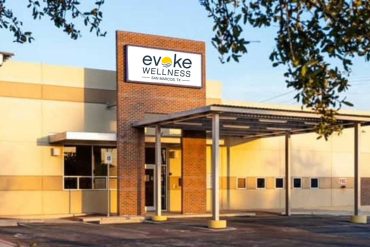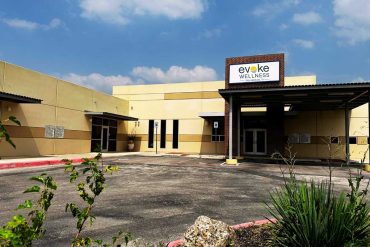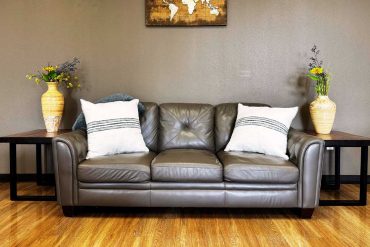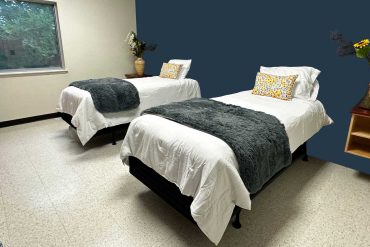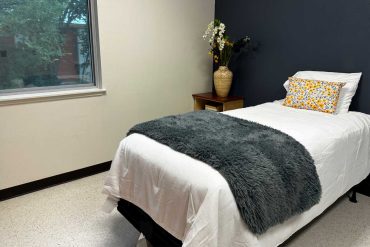A new life in addiction recovery starts now
Evoke Wellness Addiction Treatment at San Marcos
Build a foundation for lasting addiction recovery with the help of our drug and alcohol detox, residential addiction treatment, and addiction and mental health therapy programs.
In our residential addiction treatment program located just outside Austin, Texas, Evoke Wellness at San Marcos provides an addiction treatment and mental health center that is a safe, supportive environment where patients struggling with addiction are treated with respect and dignity. Our staff of addiction specialists and mental health therapists help foster long-term sobriety for our patients and their individualized treatment needs.
What We Do
About Evoke Wellness at San Marcos's Treatment Programs
Our addiction treatment approach helps our patients discover healing and stability in the body, mind, and spirit. Evoke’s treatment programs and recovery experts are here to promote hope during the early days of recovery from addiction.
Helpful Information
View Our Addiction Treatment Resources
We have a catalog of eBooks to provide education on all types of topics, including:
Other Helpful Resources
Addiction Treatment FAQs
Self-Assessment Quizzes
Addiction Treatment Glossary of Terms
What We Offer
Our Addiction Treatment Programs
Drug and alcohol detox, residential addiction treatment, and addiction therapy programs equip a person with the essential resources to manage their addiction, paving the way for a healthier future focusing on their mental health.
Discover More
Our Treatment Center Admissions Process
Evoke Wellness has streamlined our admissions process to make effective addiction treatment more accessible than ever. Our addiction treatment experts will review your individual needs and work with you on a plan for your success.
See What People Are Saying
Our Reviews
Contact Evoke Wellness Today to Verify Your Insurance
Our team can help you determine if your addiction treatment at Evoke Wellness could be at little to no-cost to you. Complete the form below and we will complete your insurance verification and get back with you shortly.

Recovery is within your grasp
Evoke Wellness at San Marcos
Effective and compassionate addiction treatment and therapies can give you a new path forward, and we’ll be with you every step of the way.

